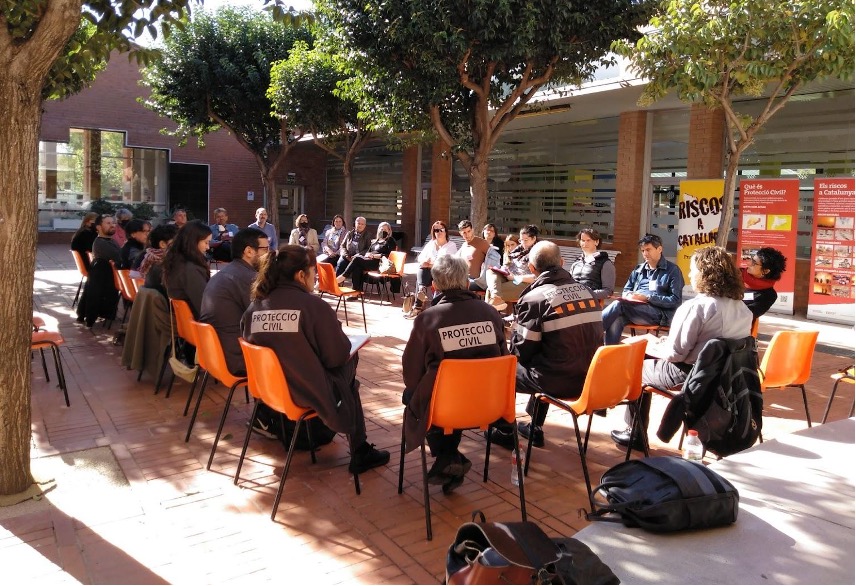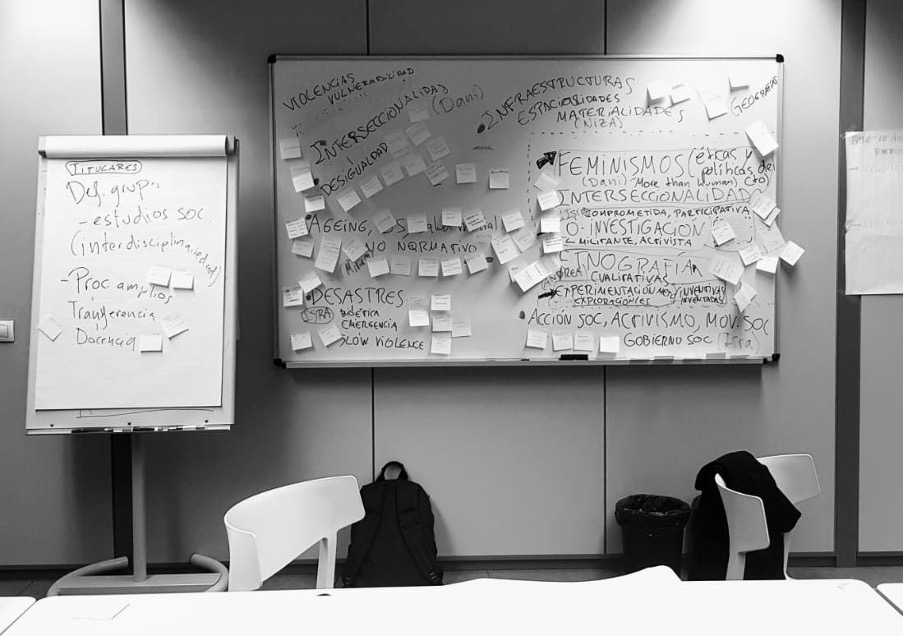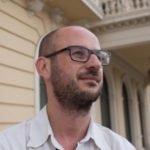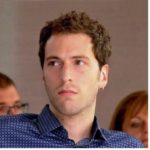Few doubt that we are globally facing a care crisis. A crisis aggravated by the transformation of the Welfare State and the proliferation of climate, environmental and technological risks and disasters. This crisis is challenging the traditional organizations and arrangements through which life is sustained and our worlds are made livable. In this context, the aim of CareNet is to understand the centrality of care in our societies and particularly, how knowledge and technology contribute to creating, transforming and sustaining networks of care, support and preparedness. Our approach to care is inspired by feminist technoscience and our way of doing STS is very much informed by care studies and theories (López Gómez, 2019; Latimer and López Gómez, 2019; Rodríguez-Giralt & Tironi, 2020). In this regard, we consider care both as an affective and ethical practice as well as a material doing that is not innocent (Puig de la Bellacasa, 2011). It is rather articulated through power relations and may reproduce forms of domination and different sorts of violence. Thus, rather than romanticizing it, our aim is to “unsettle care” in technoscience (Murphy, 2015)
So far, our exploration of care in technological societies has revolved around three main areas of inquiry:
Firstly, we have cultivated ethico-political and epistemic interests in the infrastructural aspects of care. We have approached socio-spatial relations of labour, care and the body in urban care infrastructures (Cassián-Yde, 2019) processes of design and use of telecare systems for older people (López Gómez, 2015), off-catalogue and DIY technical aids for accessibility politics (Sánchez Criado & Rodríguez-Giralt, 2016), mutual support systems and online platforms for social connectedness in later life (Beneito-Montagut et al. 2018; López-Gómez, Beneito-Montagut, and García-Santesmases, 2021). We have also focused on independent living initiatives and services for and by disabled people (Moyà, 2018), as well as infrastructures for ageing in the community and alternative social care configurations (López, Estrada, Farré, 2021). We have participated in a number of research projects aiming to understand how these infrastructures are made, how they are designed and arranged in practice (López & Sánchez-Criado, 2015; Sánchez-Criado, López, Roberts, & Domènech, 2014; Sánchez-Criado & Rodríguez-Giralt, 2016).
In these projects, we pay special attention to what usually remains invisible in the grand technological narratives: the complexities of daily-life material practices. Looking at how care is infrastructured requires studying the boring things of care, as Lampland and Leigh Star (2009) would put it. But this is a privileged angle to understand the micropolitics of care in contexts where care is increasingly technological: it foregrounds the distribution and organization of care, the different manners in which it is embodied by the actors involved, the values and normativities around what is good or bad care (Pols, 2015), as well as the materialities, temporalities and spatialities of care.
In recent years, communities, groups and online networks of care have proliferated throughout Europe that aim to construct alternatives to state-, market- and family-based care solutions where the focus is on the community. Our second line of inquiry focuses on how new networks, grassroots and more embodied (Rabeharisoa et al. 2014) forms of activism are redefining care. How they share and generate new ecologies of knowledge and new notions of citizenship around care. In this regard, we have researched a wide range of self-organized caring communities across social sectors: senior co-housing initiatives, independent living initiatives that provide self-managed services for disabled people, disaster-affected communities building up their resilience, and patients’ associations and health-activist groups looking to increase their condition’s visibility, demand better health interventions and provide support.
At the intersection of STS, social movement studies, critical ageing studies and disability studies, we also aim to understand the contested role of technoscience (Rodríguez-Giralt, Marrero & Milstein, 2018) in the configuration of old age, disability (García-Santesmases and Arenas, 2017) or mental health (Martínez et al. 2020). These are categories that define specific actors as in need of care and that othered them because the differences in their bodies, agency, interests or capacities are marked as not complying with normative standards. Our research aims to foreground how constructs such as old age (Peine, Marshall, Martin & Neven, 2021), disability, mental health or chronicity are constructed, experienced, embodied and challenged (López & Domènech, 2008; López Gómez & Sánchez Criado, 2021). This has also allowed us to expand the aforementioned intersections and progressively incorporate angles and sensibilities coming from feminisms, queer and crip perspectives, decolonial geographies or critical animal studies (Thovar, 2020).
Thirdly, CareNet also aims to study the role of knowledge and technology in the transformation of our care for/about emergencies, crises and disasters. Drawing on the conceptual and methodological work done by STS and techno-feminist approaches, this line of research critically interrogates the more naturalised, technology-driven and accelerated approaches to disasters, crises and emergencies. We explore how care can work as an epistemic, as well as an ethical-political pillar, to rearticulate disasters, crises and emergencies as much slower (Fortun et al. 2017) and contested processes (Tironi, Rodríguez-Giralt & Guggenheim, 2014; 20). Mundane care practices emerge, in disaster situations, as forms of enduring, healing but also producing knowledge, especially about the most chronic and silenced dimensions, which are often related to inequality, social exclusion and institutional abandonment (Tironi & Rodríguez-Giralt, 2017).
Through participatory, rights-oriented and culture-sensitive approaches to disasters we have been involved in projects like CUIDAR (H2020), devoted to analysing and transforming the exclusion of children and young people from the disaster planning and management (Mort, Rodríguez-Giralt and Delicado, 2019), Pyrolife (ITN, H2020) -a training programme to promote more integrated and inclusive management of wildfires in Europe-, and on creating dialogues with citizens for collaborative management of chemical risk in Catalonia. More recently, we have also been involved in several projects analyzing the impact of pandemics in several care services, from care homes to the role of digital infrastructures in providing social support, connectivity and community resilience among elderly people.Our group combines expertise from a wide variety of disciplines and fields of study: Science & Technology Studies, which is our most common background, but also Disability Studies, Gender Studies, Urban Studies, Digital Sociology, Social work, Psychology, Anthropology, etc. We are convinced that this multidisciplinary, and interdisciplinary approach, strengthens our integrated and comprehensive study of the transformation of care and preparedness.
The group is formed by 2 full-time researchers, whose time is paid by projects and the group’s budget. There are also 5 part-time researchers, who combine teaching responsibilities with research contributions, 3 associate researchers who work in other universities and 6 PhD students, all grant-holders. The group also treasures a network of academic collaborators, both nationally and internationally. And equally important, we look after a wide network of stakeholders: practitioners, activists, public administrations, service providers, etc. This is absolutely central for us, as it allows us to promote more participatory, interdisciplinary and socially relevant research. For us, interdisciplinarity has become an object of study –for instance, we have explored how different epistemic communities collaborate in the development of responsible smart technologies (CANDID, H2020)-, but it has also turned into a goal in our research practice. We like to engage in collaborative forms of research where we can experiment with our co-experts, and/or counter-experts, and co-elaborate knowledge and opportunities for social change and intervention (Criado & Rodríguez-Giralt, 2019).
This mode of research usually entails long and careful ethnographical engagements and means to be open to a more radical democratization of the who and how of techno-science. As an ethic of companionship and experimentation, it also means to be open to processes by which scientific truth and credibility, or technical objects, are publicly opened up for debate, scrutiny, control, and co-construction. This explains why the group regularly develops public engagement activities, like open days, open seminars or other forms of open science, where we share and discuss the results of our research with co-experts, stakeholders and concerned groups. As we remarked in the motto of the 2016 EASST/4S Joint Conference celebrated in Barcelona, which we contributed to organizing, we understand STS as an opportunity to perform, share and experiment with Science and Technology “by other means”.
References
Beneito-Montagut, R.; Cassián-Yde, N.; Begueria, A. (2018). What do we know about the relationship between internet-mediated interaction and social isolation and loneliness in later life? Quality in ageing and older adults, 19 (1): 14-30.
Cassián-Yde, N. (2019). Descolonizar las epistemologías urbanas: Saber experto y colectivos por el derecho a la ciudad, ¿quién puede decir «la verdad» sobre los problemas de la ciudad? Journal of Latin American Geography 18(3), 54-84. doi:10.1353/lag.2019.0056.
Criado, T. & Rodríguez-Giralt, I. (2019). Can ANT be a form of activism? In: Anders Blok; Ignacio Farias and Celia Roberts, eds. The Routledge Companion to Actor-Network Theory. London: Routledge. pp. 360-368. ISBN: 9781138084728.
Fortun K, Knowles S, Felipe Murillo L, et al. (2016) Researching disaster from an STS perspective. In: Felt U, Fouche´ R, Miller CA, et al. (eds) Handbook of Science and Technology Studies. Cambridge, MA: MIT Press. pp.1003–1028.
García-Santesmases, A.; Arenas, M. (2017). “Playing crip: the politics of disabled artists’ performances in Spain”. Research in Drama Education: The Journal of Applied Theatre and Performance, 22:3, 345-351.
Lampland, M. & Leigh Star, S. (2009). Standards and their stories: How quantifying, classifying, and formalizing practices shape everyday life. Ithaca: Cornell University Press.
López-Gómez, D., Beneito-Montagut, R., & García-Santesmases, A. (2021). No future for care without new digital media? Making time(s) for mediated informal care practices in later life. International Journal of Cultural Studies, 24(4), 637–654. https://doi.org/10.1177/1367877920951818
López Gómez, D., & Sánchez Criado, T. (2021). Civilising technologies for an ageing society? The performativity of participatory methods in Socio-gerontechnology. In A. Peine, B. L. Marshall, W. Martin, & L. Neven (Eds.), Socio-gerontechnology (pp. 85-98). Routledge.
López Gómez, D., Estrada Canal, M., & Farré Montalà, L. (2020). Havens and Heavens of Ageing-in-Community: Home, Care and Age in Senior Co-housing. In B. Pasveer, O. Synnes, & I. Moser (Eds.), Ways of Home Making in Care for Later Life (pp. 159-181). Singapore: Springer Singapore. doi:10.1007/978-981-15-0406-8
Latimer, J., & López Gómez, D. (2019). Intimate Entanglements: Affects, more-than-human intimacies and the politics of relations in science and technology. The Sociological Review, 67(2), 247-263. doi:10.1177/0038026119831623
López Gómez, D. (2019). What if ANT wouldn’t pursue agnosticism but care? In Ignacio Farías, A. Blok, & C. Roberts (Eds.), Routledge Companion to Actor-Network Theory (pp. 4-14). London: Routledge.
López Gómez, D. (2015). Little arrangements that matter. Rethinking autonomy-enabling innovations for later life. Technological Forecasting and Social Change, 93, 91-101. doi:10.1016/j.techfore.2014.02.015
López, D., & Domènech, M. (2008). Embodying Autonomy in a Home Telecare Service. The Sociological Review, 56(2_suppl), 181-195. doi:10.1111/j.1467-954x.2009.00822.x
Martínez-Hernáez, A.; Pié-Balaguer, A.; Serrano-Miguel, M.; Morales-Sáez, N.; García-Santesmases, A.; Bekele, D.; Alegre-Agís, E. (2020). “The collaborative management of antipsychotic medication and its obstacles: A qualitative study”. Social Science & Medicine, 247, 1-9.
Mort, M.; Rodríguez-Giralt, I. & Delicado, A. (2020). Children and Young People’s Participation In Disaster Risk Reduction: Agency and Resilience. Bristol: Policy Press. ISBN: 978-1447354390.
Moyà, J. (2018). Sincronitzant autonomies: estudi d’un servei de vida independent per a persones amb la síndrome de Down. Universitat Autònoma de Barcelona. PhD thesis available at: https://www.tdx.cat/handle/10803/666756#page=1
Murphy, M. (2015). Unsettling care: Troubling transnational itineraries of care in feminist health practices. Social Studies of Science, 45, 717–737.
Peine, A., Marshall, B. L., Martin, W., & Neven, L. (Eds.). (2021). Socio-gerontechnology: Interdisciplinary Critical Studies of Ageing and Technology. London; NY: Routledge.
Pols, J. (2015). Towards an empirical ethics in care: relations with technologies in health care. Med Health Care Philos, 18(1), 81-90. doi:10.1007/s11019-014-9582-9.
Puig de la Bellacasa, M. (2011). Matters of care in technoscience: Assembling neglected things. Social Studies of Science, 41, 85–106.
Rabeharisoa, V., Moreira, T., & Akrich, M. (2014). Evidence-based activism: Patients’, users’ and activists’ groups in knowledge society. BioSocieties, 9(2), 111–128. https://doi.org/10.1057/biosoc.2014.2
Rodríguez-Giralt, I. & Tironi, M. (2020). Coreografías del abandono: cuidado y toxicidad en zonas de sacrificio. En X. Guillem-Llobat & A. Nieto-Galán (Eds.). Tóxicos invisibles. La construcción de la ignorancia ambiental. Barcelona: Icaria. Pp. 237-256.
Rodríguez-Giralt, I. Marrero, I. Milstein, D. (2018). “Reassembling activism, activating assemblages: an introduction”. Social Movement Studies Journal, 17 (3) DOI: 10.1080/14742837.2018.1459299.
Sánchez-Criado, T., López, D., Roberts, C., & Domènech, M. (2014). Installing Telecare, Installing Users: Felicity Conditions for the Instauration of Usership. Science, Technology & Human Values, 39(5), 694-719. doi:10.1177/0162243913517011 10.1177/0162243913517011
Sánchez-Criado, T.; Rodríguez-Giralt, I. Mercaroni, A. (2016). Care in the (critical) making? Prototyping as a radicalisation of independent living. ALTER: European Journal of Disability Research, 10: 24-39.
Sánchez-Criado, T.; Rodríguez-Giralt, I. (2016). Caring through design? En torno a la silla and the “joint problem-making” of technical aids. In Bates, C.; Imrie, R.; Kullman, K. Care and Design: Bodies, Buildings, Cities. London: Wiley/Blackwell. pp. 198-218
Thovar, R. (2020). El movimiento animalista y la producción de carne in vitro en A. Álvarez, F. Fernández, A. Sribman y A. E. Castillo (Ed). Acción colectiva, movilización y resistencias en el siglo XXI (1ª ed., Vol 1: Teoría, pp. 131-142). Fundación Betiko. ISBN: 978-84-09-22896-6
Tironi, M.; Rodríguez-Giralt, I.; Guggenheim, M. (2014). Disasters and Politics: materials, experiments and preparedness. London: Wiley/Blackwell. ISBN: 978-1-118-5w3139-6.
Tironi, M. Rodríguez-Giralt, I. (2017). “Healing, knowing, enduring: Care and politics in damaged worlds”. The Sociological Review, 65 (2): 89-109.
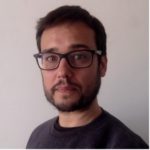 Israel Rodríguez-Giralt is senior researcher and associate professor at UOC. PhD in Social Psychology (UAB, 2008). His research is interconnecting STS and the study of new forms of technical democracy, social experimentation and technoscientific activism, particularly in disaster situations.
Israel Rodríguez-Giralt is senior researcher and associate professor at UOC. PhD in Social Psychology (UAB, 2008). His research is interconnecting STS and the study of new forms of technical democracy, social experimentation and technoscientific activism, particularly in disaster situations.
Daniel López Gómez (UOC) is PhD in Social Psychology (UAB, 2009), Associate Professor in the Department of Psychology and Education. He is an STS scholar interested in the study of care infrastructures, aging and disability, more-than-human entanglements in care, as well as grassroots innovations such as senior cohousing or mutual-care arrangements in contexts of crisis and austerity.
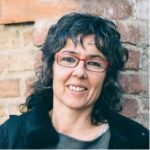 Asun Pié is PhD in Social Pedagogy (University of Barcelona, 2010), Lecturer in the Department of Psychology and Education, at the UOC. Her lines of research revolve around disabled people’s activism and the impact of public policies on dependency and social inclusion in Spain.
Asun Pié is PhD in Social Pedagogy (University of Barcelona, 2010), Lecturer in the Department of Psychology and Education, at the UOC. Her lines of research revolve around disabled people’s activism and the impact of public policies on dependency and social inclusion in Spain.
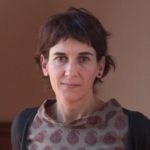 Roser Beneito Montagut (UOC/Cardiff University) holds a PhD in Fine Arts (Universidad Miguel Hernández, 2005). Associate Professor in Computing Science and Telecommunications at UOC and Lecturer in Digital Social Sciences at Cardiff University. Her research interests are digital sociology, relationships online, interpersonal communication and emotions online, social media and social isolation in later life, and social media and disaster management.
Roser Beneito Montagut (UOC/Cardiff University) holds a PhD in Fine Arts (Universidad Miguel Hernández, 2005). Associate Professor in Computing Science and Telecommunications at UOC and Lecturer in Digital Social Sciences at Cardiff University. Her research interests are digital sociology, relationships online, interpersonal communication and emotions online, social media and social isolation in later life, and social media and disaster management.
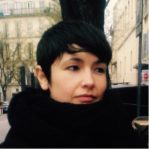 Nizaiá Cassián-Yde (UOC) is PhD in Social Psychology (UAB, 2016), lecturer in the Department of Psychology and Education at the UOC. Her field of research is Urban Studies, transformations in the contemporary postfordist city and Feminist Studies on sociospatial relations in labour, care, and the body.
Nizaiá Cassián-Yde (UOC) is PhD in Social Psychology (UAB, 2016), lecturer in the Department of Psychology and Education at the UOC. Her field of research is Urban Studies, transformations in the contemporary postfordist city and Feminist Studies on sociospatial relations in labour, care, and the body.
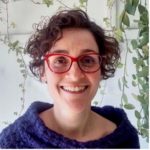 Miriam Arenas (UOC/UB) is PhD in Sociology (UB) and lecturer in the Department of Psychology and Education at the UOC. As a researcher, she explores the intersection between Feminist Studies and Disability Studies focusing on the analysis of new social movements within disability politics.
Miriam Arenas (UOC/UB) is PhD in Sociology (UB) and lecturer in the Department of Psychology and Education at the UOC. As a researcher, she explores the intersection between Feminist Studies and Disability Studies focusing on the analysis of new social movements within disability politics.
 Brigida Maestre (UOC) PhD in Social Psychology, UAB, and lecturer in the Department of Psychology and Education at the UOC. Her research explores low vision and aural disabilities as dense epistemologies.
Brigida Maestre (UOC) PhD in Social Psychology, UAB, and lecturer in the Department of Psychology and Education at the UOC. Her research explores low vision and aural disabilities as dense epistemologies.
 Andrea García-Santesmases (UNED/UOC) holds a Degree in Sociology (Carlos III University of Madrid) and in Social and Cultural Anthropology (UCM). PhD in Sociology (UB). Currently, she is Assistant Professor at the Department of Social Work at UNED. Her main lines or research are the intersections between gender studies and disability studies.
Andrea García-Santesmases (UNED/UOC) holds a Degree in Sociology (Carlos III University of Madrid) and in Social and Cultural Anthropology (UCM). PhD in Sociology (UB). Currently, she is Assistant Professor at the Department of Social Work at UNED. Her main lines or research are the intersections between gender studies and disability studies.
Joan Moyà Köhler holds a Degree in Psychology (UAB) and a PhD in Social Psychology (UAB, 2018). His work focuses on the processes and practices that articulate political participation in the field of the learning disabilities. His attention is currently focused on the field of independent living for people with Down syndrome.
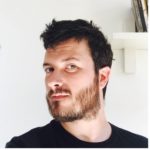 Lluvi Farré Montalà holds a Degree in Psychology (UAB, 2008). He is a PhD Candidate in the ‘Information and Knowledge Society’ Doctoral Programme at the UOC. His research interests are situated in the intersection between Science and Technology Studies (STS), Ageing Studies, Innovation and Design.
Lluvi Farré Montalà holds a Degree in Psychology (UAB, 2008). He is a PhD Candidate in the ‘Information and Knowledge Society’ Doctoral Programme at the UOC. His research interests are situated in the intersection between Science and Technology Studies (STS), Ageing Studies, Innovation and Design.
 Isabeau Ottolini holds a Degree in Environmental Sciences BSc (UNED) and a MSc in Social Sciences (WUR). She is a PhD Candidate at the UOC and Early-Stage Researcher in the PyroLife Innovative Training Network. Specifically, her research is on Inclusive Risk Communication within the context of wildfires.
Isabeau Ottolini holds a Degree in Environmental Sciences BSc (UNED) and a MSc in Social Sciences (WUR). She is a PhD Candidate at the UOC and Early-Stage Researcher in the PyroLife Innovative Training Network. Specifically, her research is on Inclusive Risk Communication within the context of wildfires.
 Pelin Çakir is a PhD candidate at the UOC. She has a background in political sciences (B.A, Bogazici University, 2012), sociology (M.A., University of Amsterdam, University of Deusto, University of Osnabrück, 2015), social work (AA, Istanbul University, 2021). She focuses on counter-hegemonic knowledge production, decolonial and feminist theories, narrative and co-creative methods.
Pelin Çakir is a PhD candidate at the UOC. She has a background in political sciences (B.A, Bogazici University, 2012), sociology (M.A., University of Amsterdam, University of Deusto, University of Osnabrück, 2015), social work (AA, Istanbul University, 2021). She focuses on counter-hegemonic knowledge production, decolonial and feminist theories, narrative and co-creative methods.
 Cristina Barrial holds a Degree in Journalism (UAB, 2017), and a M. A. on Advanced Studies of Social and Cultural Anthropology (UCM, 2019). She is currently a PhD Candidate in Society, Technology and Culture (UOC). Her thesis project approaches the political organization of domestic and care workers, with the aim of investigating how collective action and care are related in their organizational environments.
Cristina Barrial holds a Degree in Journalism (UAB, 2017), and a M. A. on Advanced Studies of Social and Cultural Anthropology (UCM, 2019). She is currently a PhD Candidate in Society, Technology and Culture (UOC). Her thesis project approaches the political organization of domestic and care workers, with the aim of investigating how collective action and care are related in their organizational environments.
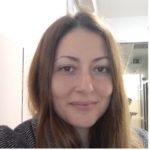 Rocío Thovar holds a Degree in Psychology (UOC, 2015). She is currently a PhD Candidate in Citizenship and Human Rights (UB). Her thesis project approaches the problematization of the treatment of animals promoted by the Animal Rights Movement, with the aim of studying the political action of this social movement and how Animal Ethics impacts on the public.
Rocío Thovar holds a Degree in Psychology (UOC, 2015). She is currently a PhD Candidate in Citizenship and Human Rights (UB). Her thesis project approaches the problematization of the treatment of animals promoted by the Animal Rights Movement, with the aim of studying the political action of this social movement and how Animal Ethics impacts on the public.
